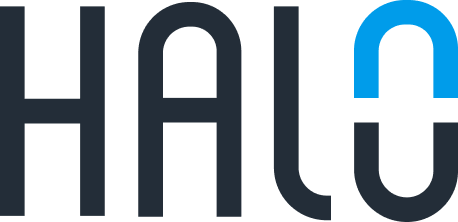Case Study: Bayer Crop Science
Breaking records: 100+ MTAs signed in 3 months
Screening compounds submitted by researchers en masse
Bayer Crop Science is a powerhouse in agriculture: The Bayer Group subsidiary accounted for almost $21 billion in sales last fiscal year and invested over $2 billion into crop science R&D.
Bayer Crop Science has an established R&D partnering practice, including as a longtime customer of Halo. In 2020, after recognizing that its portal lacked certain critical functionalities, Bayer first turned to Halo for better software to effectively manage proposals. The company has since identified and funded over 45 projects through its Grants4Ag program on Halo.
Following the success of Grants4Ag, Bayer once again leveraged Halo to increase the efficiency of its R&D operations. In 2022, Bayer introduced an ambitious new program, Testing4Ag, in which the company solicited chemical structures from the scientific community for the first time to identify the most exciting new classes of crop protection molecules.
The problem? Bayer traditionally relied on conferences and similar means to identify potential partners. And once the company did identify a partner, completing an MTA with an outside organization took an average of 3-6 months. This highly-manual process made it impractical to complete dozens concurrently.
![]()
When you combine Grants4Ag and Testing4Ag, the ground we’ve been able to cover...there's absolutely no way [we could have done it without Halo].

![]()
36 MTAs in a week is for us probably a world record. For the initiation of the MTA on a compound, you’re talking a minimum of three to six months. But you can’t do 30 of them or 100 of them that way in parallel—absolutely no way. The scale of what we were able to accomplish is orders of magnitude faster than we could have done it any other way

A DocuSign integration to automate MTAs
With an expert network spanning 95+ countries and over 1200 institutions, Halo possesses a sophisticated understanding of MTA processes. Halo was thus able to offer Bayer an automated Material Transfer Agreement (MTA) integration within the proposal process.
When a researcher at a university or startup submitted compounds to Testing4Ag, the execution of the MTA and distribution of final documents was automated through Halo and an integration with DocuSign, a process that dramatically reduced administrative work for both parties and increased throughput for signing MTAs.
Phil Taylor, PhD, Bayer's Director of Open Innovation and Outreach, said of the simplicity of Halo’s Request for Materials (RFM), “We are happy as clams!”
Record speed and reach
Bayer received 120 proposals for Testing4Ag, and the DocuSign integration expedited the MTA process from months to days.
In the first week after the proposal deadline, Bayer had already countersigned 36 MTAs from 36 institutions across 15 countries.
“36 MTAs in a week is for us probably a world record. For the initiation of the MTA on a compound, you’re talking a minimum of three to six months. But you can’t do 30 of them or 100 of them that way in parallel—absolutely no way. The scale of what we were able to accomplish is orders of magnitude faster than we could have done it any other way,” said Dr. Taylor.
The company also benefited from Halo’s vast network of PhD researchers. By the time Bayer Crop Science closed the program to new submissions, it had received proposals from 94 institutions, including 59 universities, 18 startups, and 10 government labs, with 78% of submissions originating from outside the US.
The Bayer Crop Science team describes the experience and success of the Testing4Ag program.
Conclusion
Bayer Crop Science has established innovation capabilities, a multi-billion dollar research budget, and 7,300 employees in R&D across 60 countries.
Despite this, Dr. Taylor recognized the efficiencies of leveraging a fully-integrated software solution that came with its own built-in network of engaged scientists. Rather than spend months and significant internal resources building his own MTA solution, he tapped Halo for its agility and expertise in academia-industry partnering.
